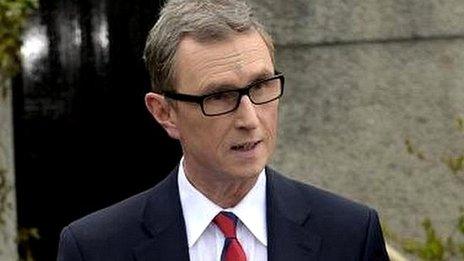Nigel Evans urges review of historical sex assault cases
- Published
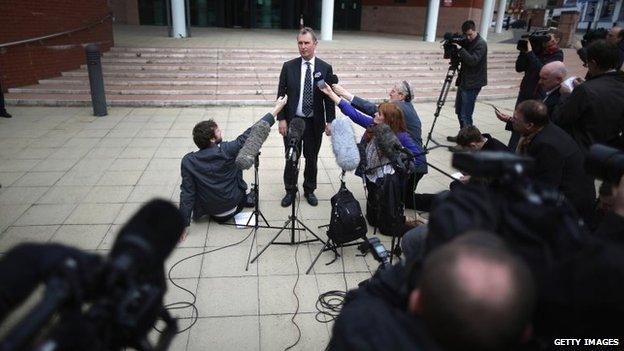
Nigel Evans said his experience had been "traumatic beyond belief"
The power of the Crown Prosecution Service to pursue historical allegations of sexual assault should be investigated, MP Nigel Evans has said.
Mr Evans, cleared of rape and sexual assault charges, likened his ordeal to being "hit by an Eddie Stobart truck as you wake up".
Commons Home Affairs Committee chairman Keith Vaz has called for an inquiry into whether the CPS needs reform.
The CPS has insisted the decision to take Mr Evans to court was correct.
Speaking on BBC Radio 4's Today programme, Mr Evans, who stepped down as deputy Speaker of the Commons to fight the allegations, said he would not seek to return to the role, although colleagues - including his replacement Eleanor Laing - had offered to stand down to allow this.
'Full glare'
Discussing the effect of the publicity surrounding his trial, he said: "It's something I'm going to have to live with. I've no doubt at all."
Nigel Evans: "It was like being hit by an Eddie Stobart truck"
Mr Evans, MP for Ribble Valley in Lancashire, said: "The people who've thrown the mud are still anonymous to this day. I was thrown into the full glare of world publicity."
He said he had asked Keith Vaz, the Labour MP who chairs the Home Affairs Committee, "to look at these cases".
He said the prosecution team in his trial had "bundled" charges together to make them "look like there was a stronger case".
Mr Evans, who has admitted he contemplated suicide at points during his ordeal, thanked "friends, including hardened journalists at Westminster who didn't believe a word of it" for supporting him.
Mr Evans, who was a Conservative MP before being elected as deputy Speaker, a politically neutral role, has not yet rejoined the party in Parliament and sits as an independent.
He said: "I want to rebuild my political career. I've been a member of Parliament for 22 years. I want to get back to doing a job I think I do very well."
Mr Evans - who has said he is £130,000 out of pocket following the case - said he would campaign for those who are wrongly accused of crimes to have their legal fees paid.
He said: "I've got an opportunity to speak out where there's injustice. I just want to make sure that I use the opportunity I've got."
Under changes brought in in 2012, only defendants who apply for legal aid before their trial are entitled to any costs after they are acquitted.
This is the case whether or not they are granted aid.
But Mr Evans's solicitor, Daniel Burke, told the BBC that Mr Evans had not applied for legal aid, and would have received it if he had.
Initially Mr Evans felt that it was not appropriate for him to burden the public purse with his defence costs, said Mr Burke.
Once his lawyers had been made aware that the prosecution had appointed Mark Heywood QC, Mr Burke said, Mr Evans had decided that he wanted his QC of choice, Peter Wright, so continued to pay privately.
If the crown had instructed a more junior barrister, Mr Burke says, Mr Evans would have applied for legal aid - or at least paid less for his own barrister.
BBC legal correspondent Clive Coleman said: "In essence, Nigel Evans wasn't satisfied with the legal representation that the state had to offer.
"He made a choice to pay privately for the best lawyer he could find. It was a choice that left him acquitted but out of pocket."
'Same test'
At Mr Evans' request, Mr Vaz, a Labour MP, has written to Michael Fuller, chief inspector of the Crown Prosecution Service Inspectorate, asking "whether we need to make changes to the system".
He said: "The balance must be struck so that the public remains fully confident that those who are guilty will be brought to justice, but also that those who are innocent are not unnecessarily punished."
Last week Downing Street confirmed there were "no plans to change" current arrangements regarding the anonymity of defendants in sexual cases.
Director of public prosecutions Alison Saunders has defended the decision to prosecute Mr Evans.
She said on Friday that the CPS applied the "same test no matter who the offender or the victim is".
"We looked at all the evidence and decided there was a realistic prospect of conviction," she added.
Lancashire Police has also defended its "fair, professional and proportionate" handling of the case.
Det Supt Ian Critchley said the force had pursued Mr Evans in the same way it would anyone else.
Speaking at his monthly press conference, Deputy Prime Minister Nick Clegg said: "Of course the CPS will have questions to answer but I don't think we should rush to judgements on the system."
He added: "The CPS should be left entirely free and independent in how it deals with cases brought before it."
- Published14 April 2014
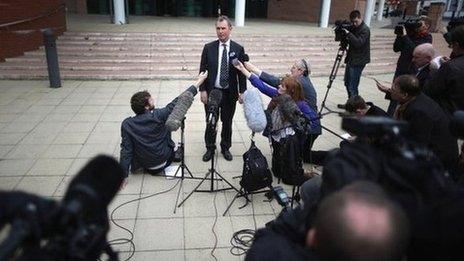
- Published12 April 2014
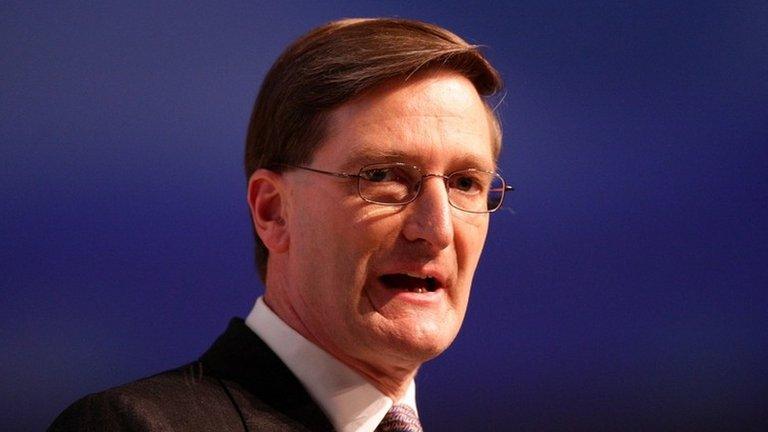
- Published11 April 2014
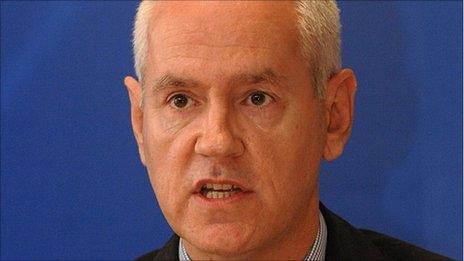
- Published10 April 2014
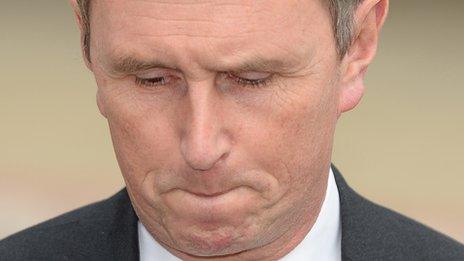
- Published10 April 2014
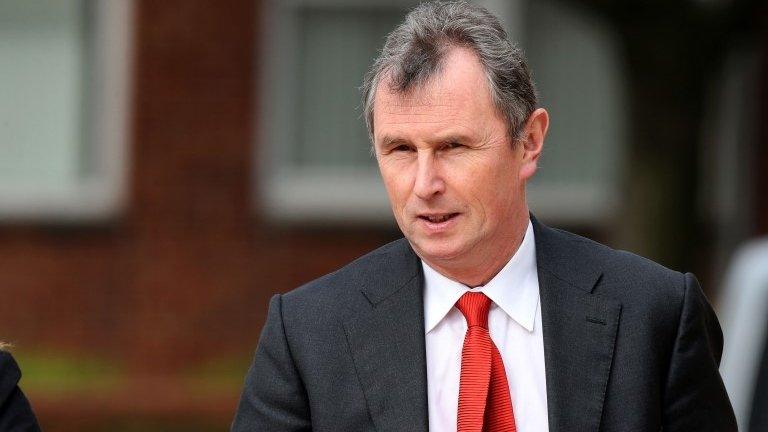
- Published10 April 2014
